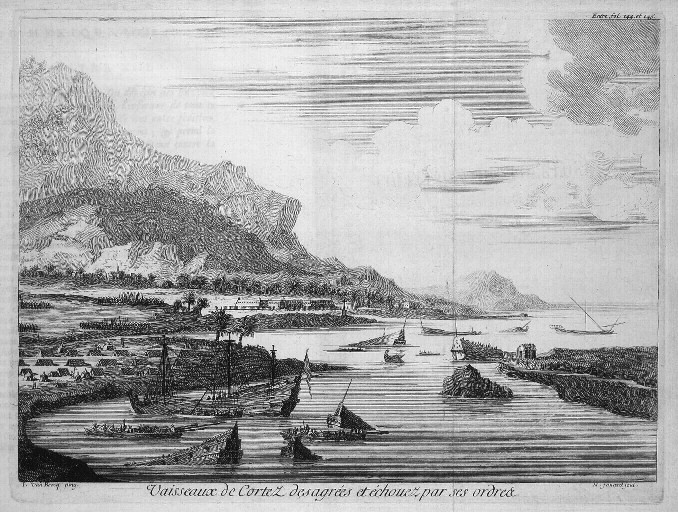The search is on for the lost ships of Hernán Cortés, conqueror of Central America
The lost fleet is thought to lie at the bottom of the Gulf of Mexico.

The Spanish conquistador Hernán Cortés landed in Yucatan, Mexico, in 1519, eventually to conquer the Aztec empire of Central America. Now, 500 years later, Mexican researchers plan to find these lost shipwrecks and explore them to see what artefacts they might hold.
Popular accounts suggest that Cortés burnt his ships to prevent his men from attempting to flee. But Cortés himself claimed in a letter to the Spanish king Charles V that he sank, or 'scuttled', the fleet off the coast of Veracruz.
About a dozen ships are thought to remain at the sea bed in the Gulf of Mexico, where he left them. They have never been found or explored by archaeologists.
The Sub-Directorate of Underwater Archaeology at Mexico's National Institute of Anthropology and History (INAH) has announced that it plans to dredge the shores where Cortés landed to recover the ships, the Mexican newspaper La Crónica de Hoy reports.
The project will be led by Pilar Luna, former head of the Sub-Directorate of Underwater Archaeology. They plan to see how many of the dozen Spanish ships still remain in the Gulf of Mexico where they were left 500 years ago, and what state they are in.
The expedition was spurred on by the enthusiasm of treasure hunters, who had been pressuring the Mexican government for permission to explore the cargo of the lost ships.
If the ships and their contents are found to be well-preserved, they could reveal crucial details about Cortés' mission and the long voyage to Central America. Relatively little is known about this period, although recent documents discovered have shed some light.
In the wake of Cortés' invasion, land was divided up, taxes demanded and many local people were enslaved. Wars with the Spanish as well as disease conspired to bring about the quick demise of the Aztec civilisation.

© Copyright IBTimes 2025. All rights reserved.





















